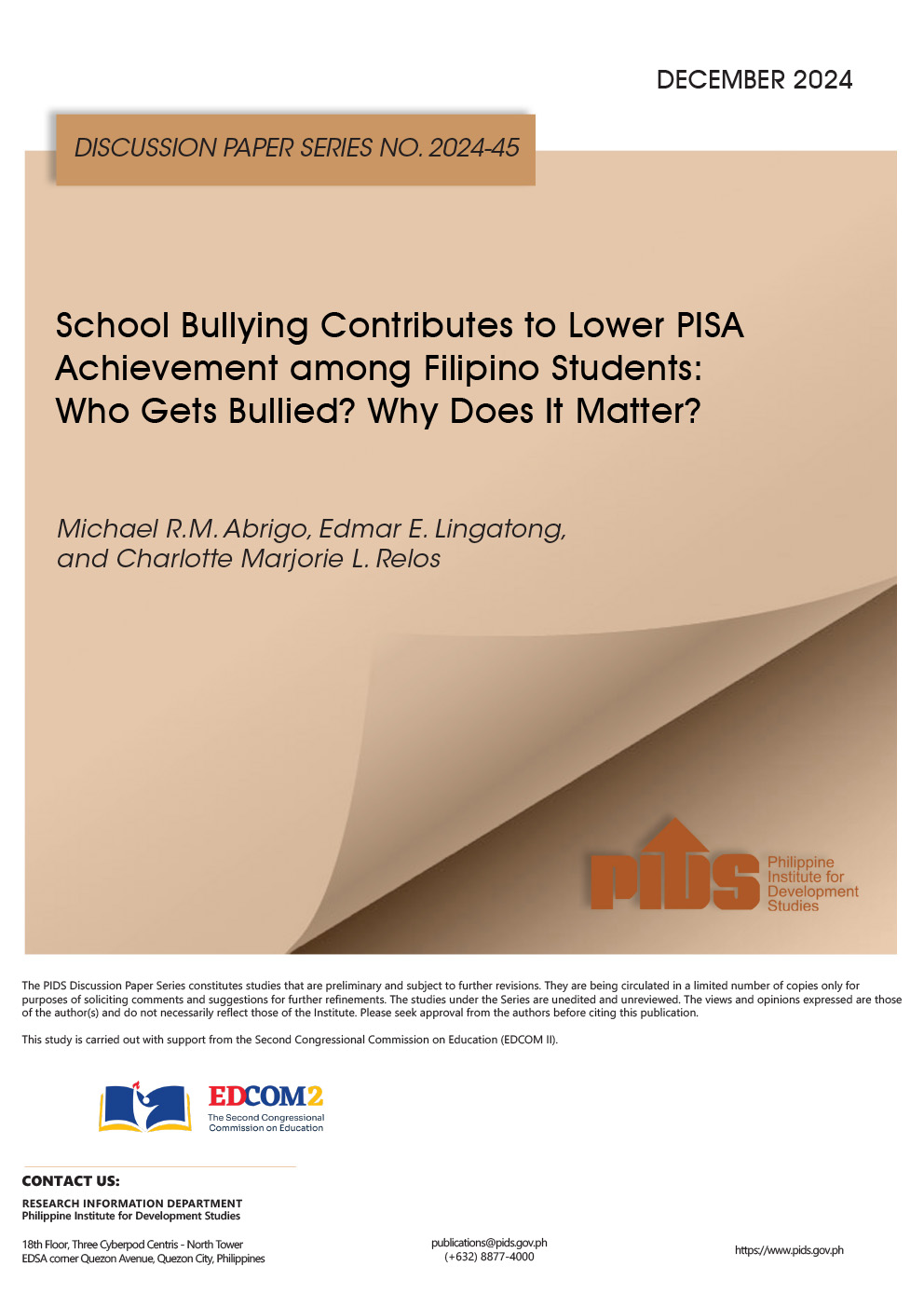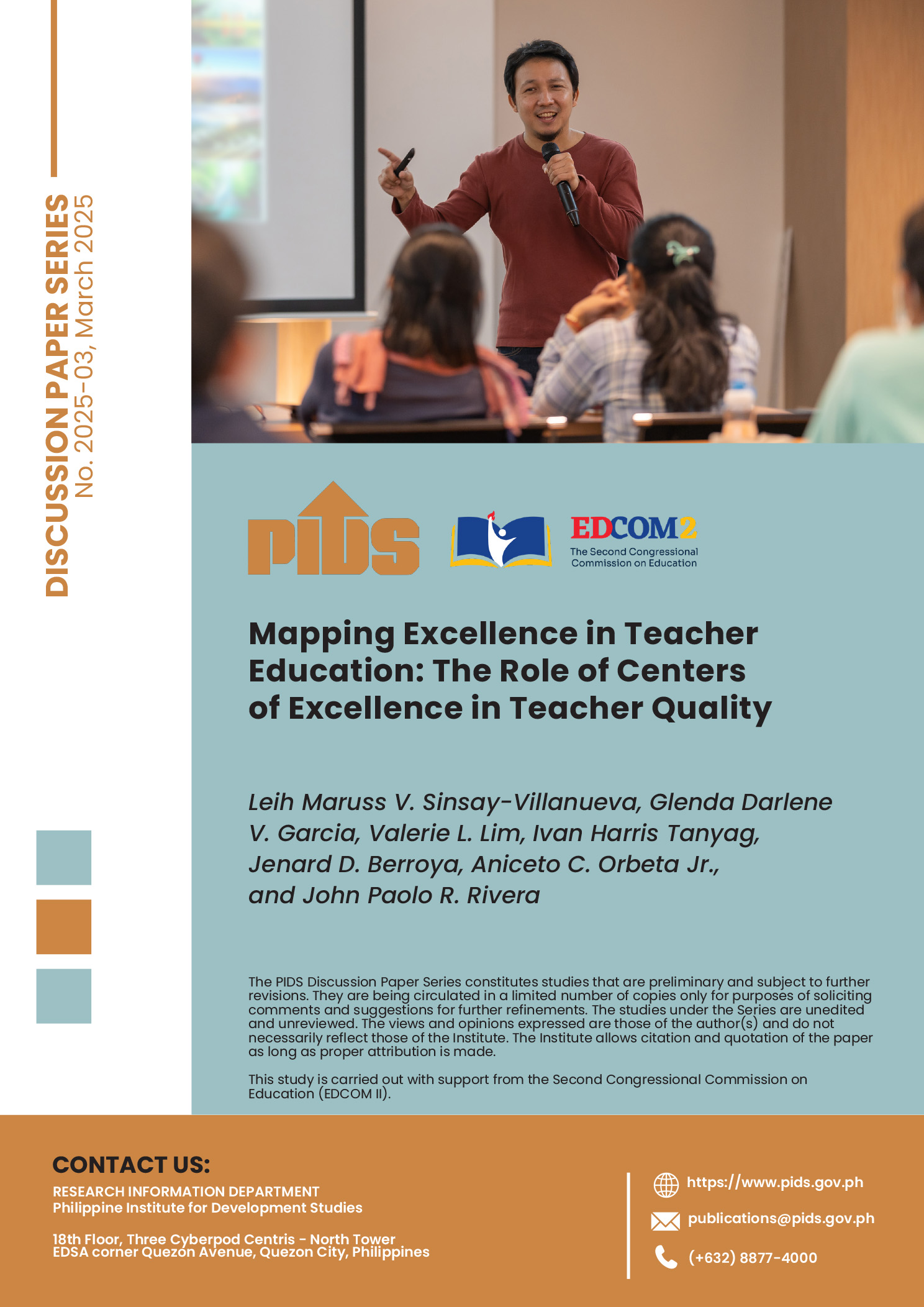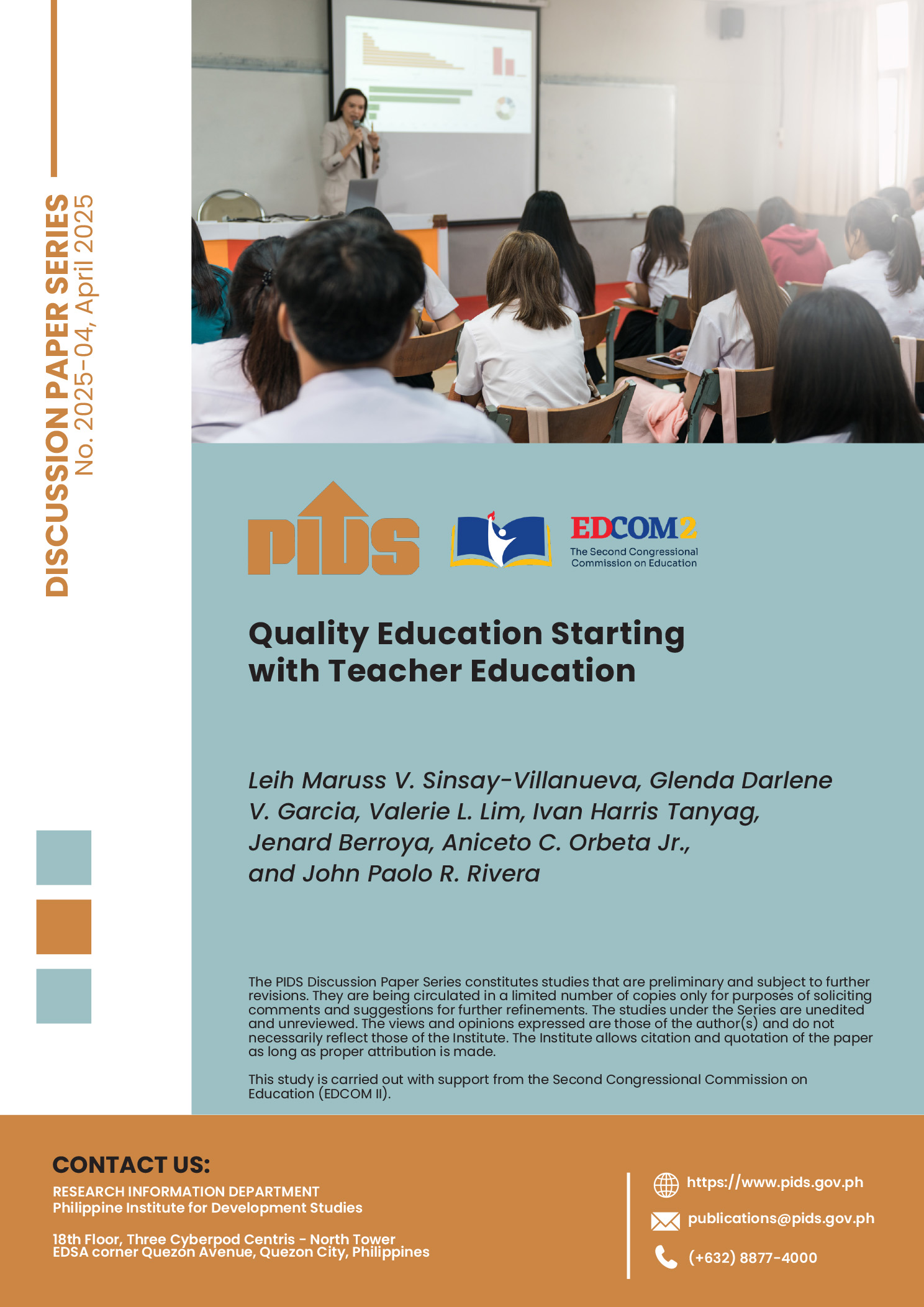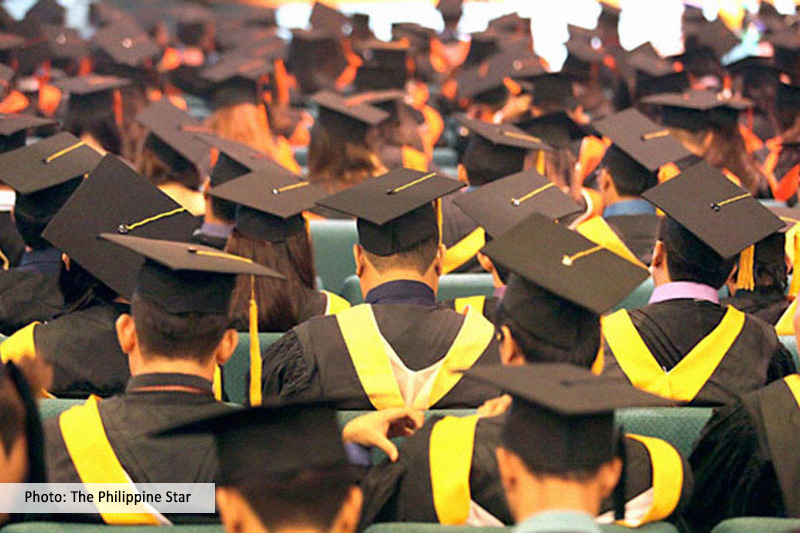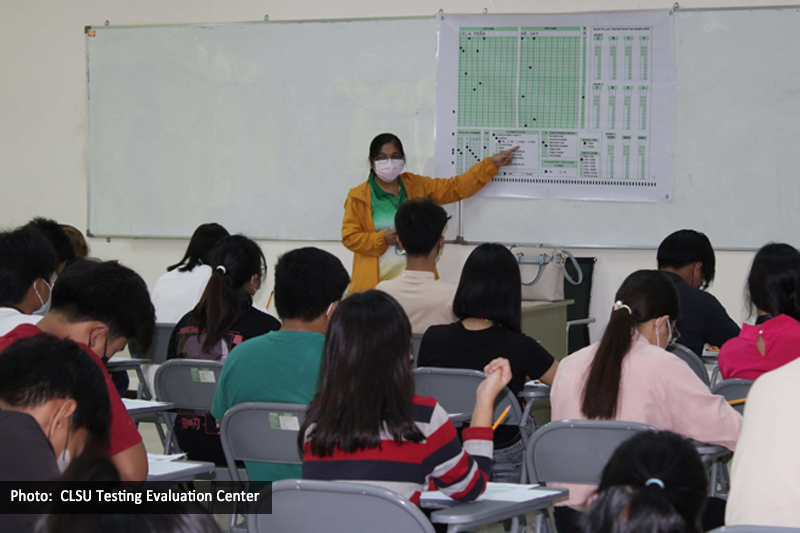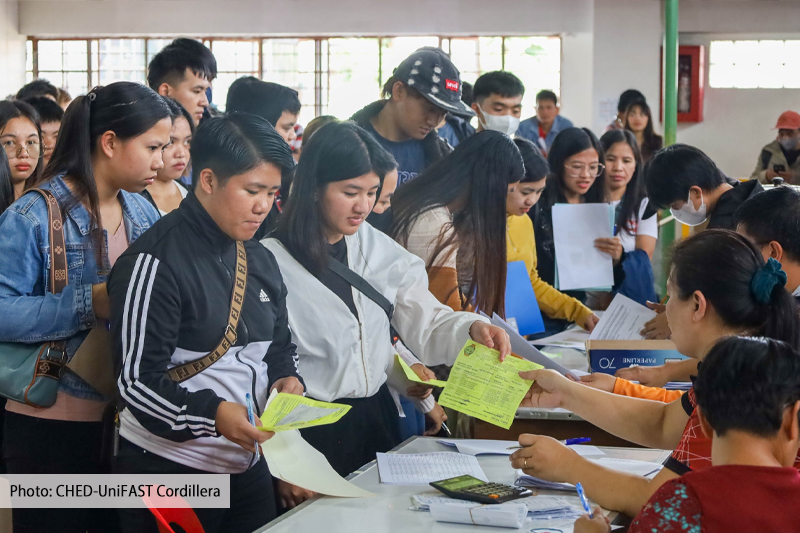There’s no free lunch, but in the Philippines there’s free housing, education and, soon, free irrigation and tax-free incomes.
Last week President Duterte blindsided his economic managers and signed into law Republic Act (RA) 10931, or the Universal Access to Quality Tertiary Education Act.
The new law provides students free tuition in all state universities and colleges (SUCs) nationwide—a proposition that was earlier opposed by the economic team, namely, Finance Secretary Carlos G. Dominguez III, Socioeconomic Planning Secretary Ernesto M. Pernia and Budget Secretary Benjamin E. Diokno.
But this is not the first time the government has given away freebies. Within less than a year of his administration, Duterte decided to give away housing units to victims of Supertyphoon Yolanda, Typhoon Pablo, and the urban poor.
In February the President declared that recipients of the 200,000 housing facilities to be built by the government in the Yolanda corridor and for those affected by Pablo will be free of charge. In April unoccupied housing units intended for the military and police were given to 4,000 informal settler families and urban poor members of the Kalipunan ng Damayang Mahihirap for free.
But the freebies do not stop there. The government also wants to exempt taxing Filipinos earning P250,000 or less a year under the proposed Tax Reform for Acceleration and Inclusion Act, as well as irrigation-system use for smallholder farmers under the Free Irrigation Act.
Both bills are included in the list of 13 priority legislations identified by the Legislative-Executive Development Advisory Council Executive Committee this year. “Nothing really is free. Somebody ends up paying. Either the present generation who pays higher taxes or the future generation who ends up paying borrowed money used to finance ill-conceived political interventions,” Philippine Institute for Development Studies (PIDS) President Gilberto Llanto told the BusinessMirror.
Hefty price tag’
Oil-rich socialist country Venezuela recently plunged into a financial crisis, and reports stated that the country is already on its last $10.5 billion. The decline in government coffers was partly due to falling oil prices and sweeping economic and financial reforms.
Its president, Hugo Chavez, who assumed office in 1999, used Venezuela’s wealth amassed from its oil exports to provide free housing, health care and better education. These, along with other measures, reports noted, contributed to rendering a previously oil-rich nation destitute.
Former Socioeconomic Planning Secretary Romulo V. Neri told the BusinessMirror that this can also happen to the Philippines under the weight of the freebies it is giving. The most recent of which is the decision to make college education free.
Neri said he shares the sentiments of the President’s economic team and other economists in saying that the free college tuition in SUCs was nothing but a bad decision.
With this decision already made, Neri added the government placed itself in a difficult situation—deciding which items in its budget or programs and projects will suffer to make room for free tuition in SUCs.
This sacrifice is important to make because the Duterte administration wants to keep its deficit at 3 percent of GDP. This is the maximum level that the government can impose, since anything beyond this would already affect the country’s investment-grade status.
If you do things like these, and you don’t save on other measures, we will exceed 3 percent, and that will affect our credit standing, it will affect interest rates, and we will go back to the old times when we had unmanageable debt if we’re not careful,” Neri said.
Ateneo de Manila EagleWatch senior fellow Alvin Ang agreed and said the problem with the current administration’s efforts to make a number of basic needs free is that there seem to be no “gatekeepers” that can lead to leakages.
With the decision to make college tuition free, Ang said the government has opened the floodgates for richer and even ultrarich students enrolled in SUCs to avail themselves of the free education, which “defeats the purpose” of the law.
This was also the main argument of the President’s economic team, as well as the PIDS study authored by senior research fellows Aniceto C. Orbeta Jr. and Vicente B. Paqueo, which indicated that poor students only comprise 12 percent of the population of SUCs nationwide.
It’s for the poor, so the rich should not be able to access it. If those who have the means to pay can access it, that will be unfair to the poor,” Ang said.
Llanto added that with this decision, the government should face the possible crowding out of the private sector in education. Students studying in privately owned higher education institutions may flock to SUCs, making it difficult for them to remain open.
This, he said, can also cause teachers and members of the administration staff of private schools to lose their jobs and freeze wage adjustments.
Llanto also said the “irony” of the decision to extend these “freebies” is that the burden of the indirect revenue collection is placed on workers belonging to the middle- and low-income classes.
The middle class and poor pay higher indirect taxes for goods supposed to be intended for the poor. But there are leakages. Those public goods could end up in the pocket of the nonpoor,” he added.
Adjustments
Economists said there is already no point in debating on whether the government should move toward extending these freebies because the Duterte administration seems firm on its decision.
Ang said the government should instead focus on increasing the country’s tax effort—or the tax collection as a percentage of GDP—to around 20 percent, a rate that has eluded the Philippines in over 30 years. This will allow the government to finance the provision of freebies.
Based on data from the Department of Finance, the country’s tax effort was at 13.7 percent in 2016. Between 1986 and 2016 the highest tax effort recorded was in 1996 and 1997, when it was pegged at 15.3 percent.
He added the administration must also push for stricter rules in implementing these freebies, such as imposing income requirements as basis for accepting students in SUCs.
The economists offered a number of suggestions for free education. Llanto said this can be done through a voucher system, which will work in tandem with a grants-in-aid program. Poor students will be given vouchers and allow them to choose the best school that will educate them.
Neri, for his part, said the government must also be careful in preventing the decline in the quality of infrastructure projects as a result of the reallocation of funds to accommodate free economic services
t’s the government’s decision. So if they decide that these are public goods, then they should look for funds, appropriate it properly. Even if the funding needed is not large, such as in housing, it’s not right to just give them away for free because you have to have a holistic view,” Ang said.
Above all, free services from the government should be well-targeted. Ang added this is key to achieving the Duterte administration’s socioeconomic goals.
Last week President Duterte blindsided his economic managers and signed into law Republic Act (RA) 10931, or the Universal Access to Quality Tertiary Education Act.
The new law provides students free tuition in all state universities and colleges (SUCs) nationwide—a proposition that was earlier opposed by the economic team, namely, Finance Secretary Carlos G. Dominguez III, Socioeconomic Planning Secretary Ernesto M. Pernia and Budget Secretary Benjamin E. Diokno.
But this is not the first time the government has given away freebies. Within less than a year of his administration, Duterte decided to give away housing units to victims of Supertyphoon Yolanda, Typhoon Pablo, and the urban poor.
In February the President declared that recipients of the 200,000 housing facilities to be built by the government in the Yolanda corridor and for those affected by Pablo will be free of charge. In April unoccupied housing units intended for the military and police were given to 4,000 informal settler families and urban poor members of the Kalipunan ng Damayang Mahihirap for free.
But the freebies do not stop there. The government also wants to exempt taxing Filipinos earning P250,000 or less a year under the proposed Tax Reform for Acceleration and Inclusion Act, as well as irrigation-system use for smallholder farmers under the Free Irrigation Act.
Both bills are included in the list of 13 priority legislations identified by the Legislative-Executive Development Advisory Council Executive Committee this year. “Nothing really is free. Somebody ends up paying. Either the present generation who pays higher taxes or the future generation who ends up paying borrowed money used to finance ill-conceived political interventions,” Philippine Institute for Development Studies (PIDS) President Gilberto Llanto told the BusinessMirror.
Hefty price tag’
Oil-rich socialist country Venezuela recently plunged into a financial crisis, and reports stated that the country is already on its last $10.5 billion. The decline in government coffers was partly due to falling oil prices and sweeping economic and financial reforms.
Its president, Hugo Chavez, who assumed office in 1999, used Venezuela’s wealth amassed from its oil exports to provide free housing, health care and better education. These, along with other measures, reports noted, contributed to rendering a previously oil-rich nation destitute.
Former Socioeconomic Planning Secretary Romulo V. Neri told the BusinessMirror that this can also happen to the Philippines under the weight of the freebies it is giving. The most recent of which is the decision to make college education free.
Neri said he shares the sentiments of the President’s economic team and other economists in saying that the free college tuition in SUCs was nothing but a bad decision.
With this decision already made, Neri added the government placed itself in a difficult situation—deciding which items in its budget or programs and projects will suffer to make room for free tuition in SUCs.
This sacrifice is important to make because the Duterte administration wants to keep its deficit at 3 percent of GDP. This is the maximum level that the government can impose, since anything beyond this would already affect the country’s investment-grade status.
If you do things like these, and you don’t save on other measures, we will exceed 3 percent, and that will affect our credit standing, it will affect interest rates, and we will go back to the old times when we had unmanageable debt if we’re not careful,” Neri said.
Ateneo de Manila EagleWatch senior fellow Alvin Ang agreed and said the problem with the current administration’s efforts to make a number of basic needs free is that there seem to be no “gatekeepers” that can lead to leakages.
With the decision to make college tuition free, Ang said the government has opened the floodgates for richer and even ultrarich students enrolled in SUCs to avail themselves of the free education, which “defeats the purpose” of the law.
This was also the main argument of the President’s economic team, as well as the PIDS study authored by senior research fellows Aniceto C. Orbeta Jr. and Vicente B. Paqueo, which indicated that poor students only comprise 12 percent of the population of SUCs nationwide.
It’s for the poor, so the rich should not be able to access it. If those who have the means to pay can access it, that will be unfair to the poor,” Ang said.
Llanto added that with this decision, the government should face the possible crowding out of the private sector in education. Students studying in privately owned higher education institutions may flock to SUCs, making it difficult for them to remain open.
This, he said, can also cause teachers and members of the administration staff of private schools to lose their jobs and freeze wage adjustments.
Llanto also said the “irony” of the decision to extend these “freebies” is that the burden of the indirect revenue collection is placed on workers belonging to the middle- and low-income classes.
The middle class and poor pay higher indirect taxes for goods supposed to be intended for the poor. But there are leakages. Those public goods could end up in the pocket of the nonpoor,” he added.
Adjustments
Economists said there is already no point in debating on whether the government should move toward extending these freebies because the Duterte administration seems firm on its decision.
Ang said the government should instead focus on increasing the country’s tax effort—or the tax collection as a percentage of GDP—to around 20 percent, a rate that has eluded the Philippines in over 30 years. This will allow the government to finance the provision of freebies.
Based on data from the Department of Finance, the country’s tax effort was at 13.7 percent in 2016. Between 1986 and 2016 the highest tax effort recorded was in 1996 and 1997, when it was pegged at 15.3 percent.
He added the administration must also push for stricter rules in implementing these freebies, such as imposing income requirements as basis for accepting students in SUCs.
The economists offered a number of suggestions for free education. Llanto said this can be done through a voucher system, which will work in tandem with a grants-in-aid program. Poor students will be given vouchers and allow them to choose the best school that will educate them.
Neri, for his part, said the government must also be careful in preventing the decline in the quality of infrastructure projects as a result of the reallocation of funds to accommodate free economic services
t’s the government’s decision. So if they decide that these are public goods, then they should look for funds, appropriate it properly. Even if the funding needed is not large, such as in housing, it’s not right to just give them away for free because you have to have a holistic view,” Ang said.
Above all, free services from the government should be well-targeted. Ang added this is key to achieving the Duterte administration’s socioeconomic goals.

